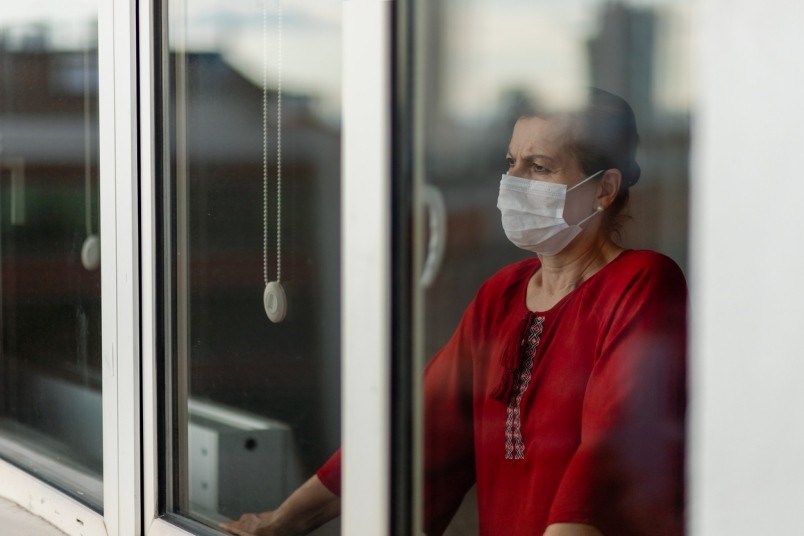AS HEALTH-CARE workers continue to treat cases of COVID-19, some government officials around the world have started to look at the calendar in an attempt to establish a date for loosening social distancing guidelines and re-opening stores and restaurants.
In the United States, an incumbent president desperate to stave off job losses in an election year is battling governors who have, albeit with different levels of success, managed to mitigate the outbreak. Canada has thankfully experienced better communication across various levels of government, along with dire warnings from politicians.
Most Canadians are ready for a lengthy lockdown. In the most recent survey by Research Co. and Glacier Media, only 18% of Canadians expect things in their city or town to go back to the way they were before the COVID-19 outbreak by mid-June or before. About three in 10 (31%) foresee things changing back in July or August. Almost two in five (38%) predict a return to normalcy by mid-September or later.
Canadians aged 55 and over appear more resigned to resuming their regular activities in the fall (47%) than their counterparts aged 35 to 54 (38%) and aged 18 to 34 (30%). The country's youngest adults are more hopeful of lockdowns ending by mid-June or before (29%), a view shared by only 16% of those aged 35 to 54 and just 9% of those aged 55 and over.
Most residents of Atlantic Canada (51%) expect life as they knew it to come back in mid-September or later. Western Canadians are closer to this assessment as well, with 44% of British Columbians, 43% of Albertans and 42% of residents of Saskatchewan and Manitoba also foreseeing a summer spent mostly inside their homes.
Canada's two most populous provinces are more optimistic of a quicker resolution. Only 32% of Ontarians and Quebecers believe the current situation will endure until the fall, and more than one in five (22% in Ontario and 21% in Quebec) believe mid-June will bring a modification to our daily routines.
Nobody knows exactly what will come back when the lockdown ends. In any case, about two-thirds of Canadians think the lessons we are learning will remain with us after the COVID-19 outbreak is gone, with 65% expecting both people and companies to maintain their current precautions on hygiene.
Another issue that has been discussed prominently is our relationship with animals, especially with reports of COVID-19 originating inside a "wet market" in China. One in five Canadians (21%) believe more people will consider adopting vegetarian or vegan diets. Residents of British Columbia are more likely to foresee this trend (26%) than those in other parts of Canada.
Speaking of food, there are other behavioural changes. Across the country, almost half of Canadians (47%) are cleaning the groceries they buy to prevent infection—a proportion that climbs to 52% among women and Quebecers.
In addition, two in five Canadians (40%) say they are not ordering food from restaurants because they fear infection, including 47% of Atlantic Canadians and 42% of British Columbians. This finding could have major ramifications on restaurateurs who are working to offer take-out and delivery, only to see a considerable proportion of would-be customers dreading contagion.
Confinement can also have a negative effect on personal health and relationships. Three in 10 Canadians (29%) say they are overeating, while 18% are losing their temper more often and 13% are drinking more alcohol. The country's youngest adults are more likely to report falling prey to fits of anger and liquor overindulgence (26% and 18%, respectively).
In spite of many recent debates over the benefit of masks, only 14% of Canadians acknowledge wearing one every time they go out, including 22% of those aged 18 to 34 and 19% of Ontarians and British Columbians.
A vaccine will be instrumental in the defeat of COVID-19, as most health authorities have consistently outlined. In February, we found that 50% of Canadians endorsed mandatory seasonal disease vaccinations for adults in their province, while 44% would leave the decision up to individuals.
When Canadians are asked if they would take a vaccine against COVID-19 if it becomes available, more than seven in 10 (73%) say they "definitely" or "probably" would do so, while only 14% would not consider this option and 13% are undecided.
Demand for a COVID-19 vaccine is highest among Atlantic Canadians (79%) and Albertans (78%), but more than two-thirds of residents of Manitoba and Saskatchewan (75%), British Columbia (73%), Ontario (71%) and Quebec (69%) would also get themselves inoculated.
As the weeks of confinement pile on, most Canadians are ready to maintain self-restraint as long as necessary. While we long for a vaccine, we are keenly aware that our plans for the summer—just like our plans for the March break—may have to be altered.
Mario Canseco is president of Research Co.
Results are based on an online study conducted from April 13 to April 15 among 1,000 adults in Canada. The data has been statistically weighted according to Canadian census figures for age, gender and region. The margin of error—which measures sample variability—is plus or minus 3.1 percentage points, 19 times out of 20




